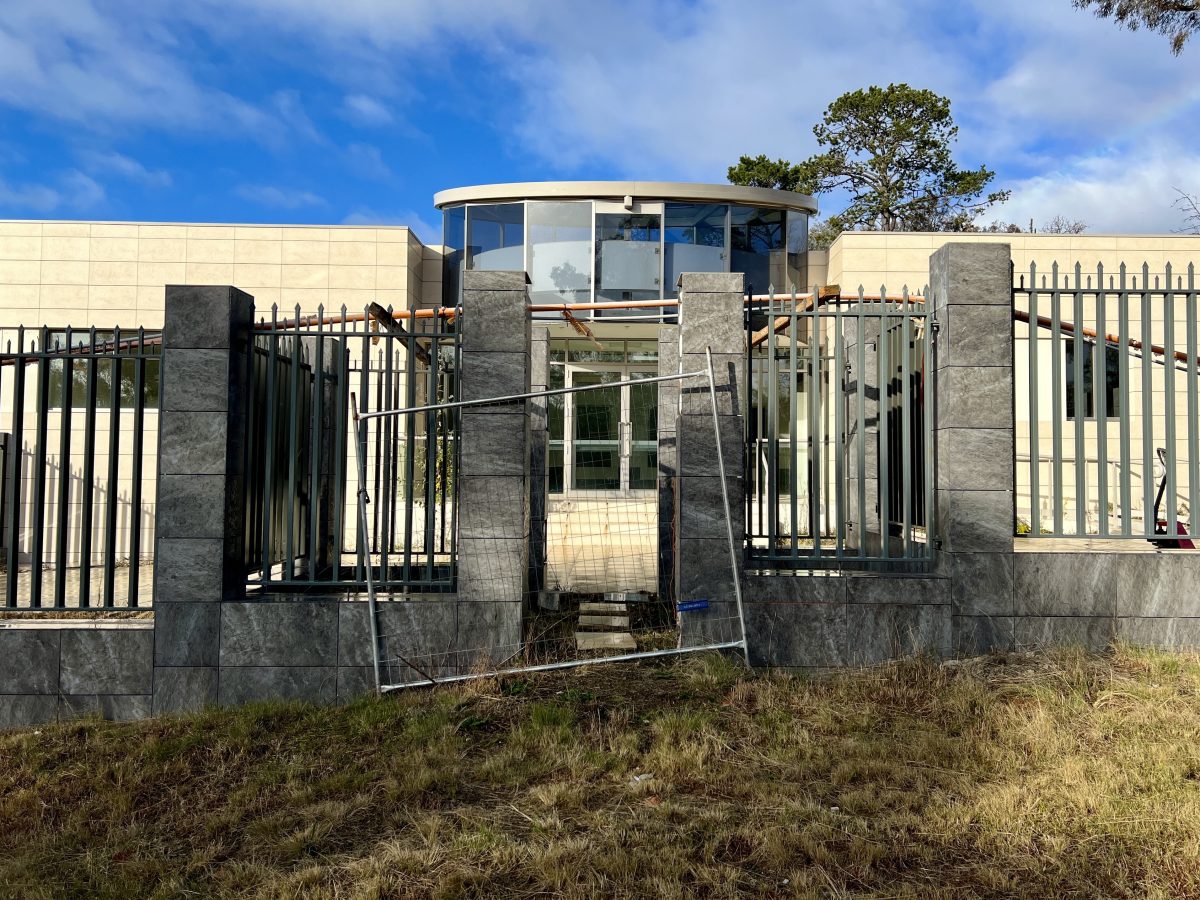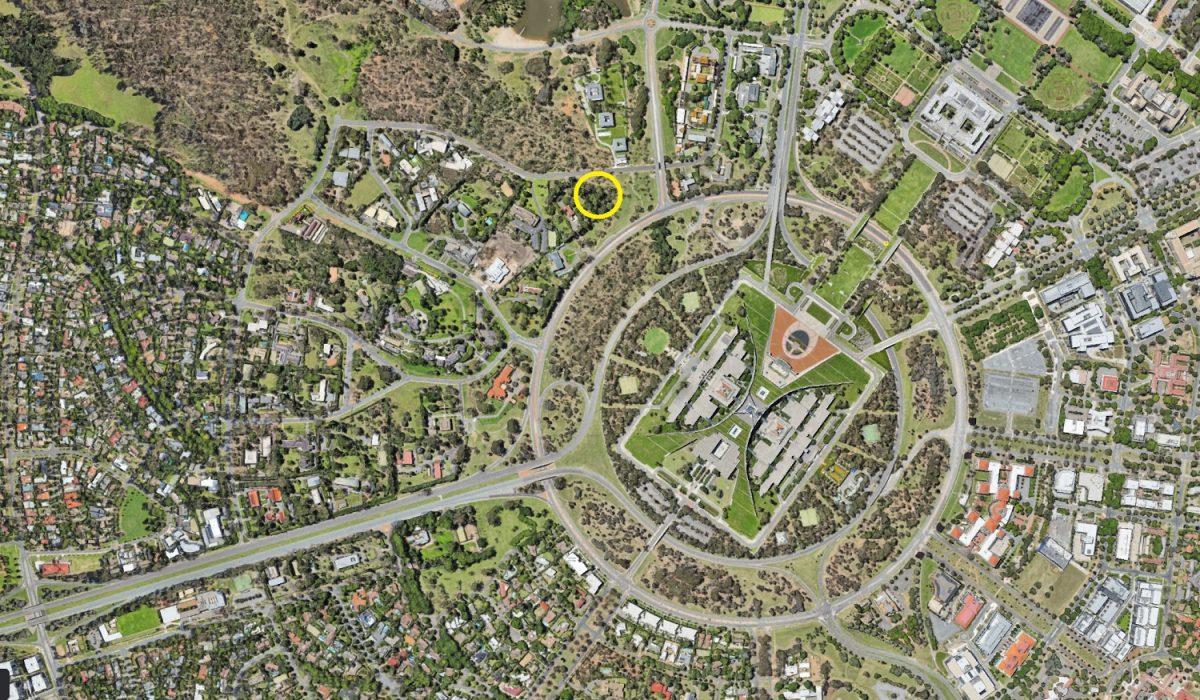
The Russian Federation’s lease for the Yarralumla block was originally granted in December, 2008, with works and building approvals granted on 31 March, 2011, and 23 September, 2011. Photo: James Coleman.
Australia’s High Court will determine whether a 2023 Commonwealth law which prevented Russia from building an embassy in the so-called “dress circle” is legally valid.
The Russian Federation’s 2008 lease for the Yarralumla block of land, located about 300 metres from Parliament House, was terminated by the National Capital Authority (NCA) in 2022 on a “use it or lose it” basis.
At the time the Russian Embassy told Region the lease cancellation was an “unprecedented and highly unwelcome move” and took the matter to the Federal Court.
The court declared in 2023 the NCA’s lease termination was invalid which saw the Commonwealth quickly introduce the Home Affairs Act 2023 to declare the land couldn’t be used for “a future diplomatic presence” due to national security advice.
This came to a head in the High Court on Wednesday (6 August).
According to published court documents, lawyers for the Russian Federation (as the plaintiff) argued the act was invalid as “it is not supported by a Commonwealth head of power” and the parcel of land had always been designated for “use as a Diplomatic Mission” under the National Capital Plan.
“The act does not state the reason for the termination, identify the lessee or identify any other relevant matters,” lawyers for the plaintiff submitted.
“In particular, it neither specifies nor refers to any concerns regarding the defence of the Commonwealth or the desire to abide by any international obligation.”

A map shows the proximity of the disputed Yarralumla site (in yellow) to Parliament House. Image: Google Earth.
The Russian Federation’s submission argued there weren’t any “constitutional facts of evidence” that supported terminating the lease on national security grounds, nor were there any other plans or “proposed use” of the land itself.
“The act does not seek to terminate the plaintiff’s diplomatic presence in Australia but rather just terminate its interests in the parcel of land,” it stated.
“There is no evidence that the plaintiff was planning an internal attack such that termination of the lease was for the purpose of protecting Australia from an internal attack.
“As land adjacent to the land is leased to other foreign nations, it cannot be said that ‘national security’ interests are engaged merely because the land is near parliament.”
The Russian Federation argued that, if the court did find the law was valid, then the Commonwealth would need to pay “a reasonable amount of compensation”.
Its submission did not outline what that compensation should be, but stated the lease had a 99-year term and the Russian Federation had already paid a land premium of $2.75 million and associated fees for the lease.
The Commonwealth’s submissions (as the defendant) refuted the claim the law wasn’t supported by a head of power and argued that, given the law’s interaction with the Australian Constitution, the plaintiff would not be entitled to compensation.
“Including because it would be incongruous for the Commonwealth to be required to compensate the Russian Federation for terminating a lease over property in response to a risk that it would use that very property to harm Australia’s national security,” the defendant submitted.
Its lawyers submitted that Prime Minister Anthony Albanese had received “very specific advice” from the Australian Security Intelligence Organisation (ASIO) about how the embassy’s proximity to Parliament House would present certain capabilities in terms of “potential interference with activity that occurs” in the building.
The Commonwealth agreed with the plaintiff’s submission that the lease’s termination wasn’t to put the land to any other proposed use or application and its “sole purpose” was to “alleviate national security risk” by stopping the Russian Federation from occupying the land.
But it argued the law did allow it to take the property without acquiring it and thus it remained valid.
The Commonwealth argued this also meant compensation claims couldn’t be enlivened.
“Parliament’s power is at its zenith when it legislates to protect its own security because if Parliament cannot ensure the security of the very place where it meets then it cannot ensure a practical precondition to the exercise of Commonwealth legislative power,” its submission stated.
“The constitutional conception of ‘just terms’ does not extend to requiring a foreign state to be compensated for actions taken in order to address the risk of that foreign state interfering with Australia’s democratic institutions.
“Were it otherwise, Australian taxpayers would be required to compensate the Russian Federation for action taken to address a risk that emanates from the Russian Federation itself.”
The High Court will make a determination at a later date.
The block of land in Yarralumla remains vacant.
Original Article published by Claire Fenwicke on Region Canberra.


